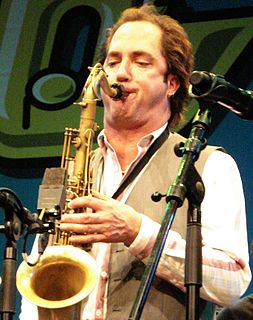
There Must Be a Better World Somewhere is the twenty seventh studio album by B. B. King released in 1981. It was awarded the Grammy Award for Best Ethnic or Traditional Recording the following year.

Consummation is an album by the Thad Jones/Mel Lewis Jazz Orchestra. It was released in 1970 on Blue Note Records and re-released in 2002. It was recorded at A&R Studios in New York City. The album was nominated for a 1970 Grammy award in the "Best Jazz Performance - Large Group..." category. All tracks are also included on Mosaic's limited edition boxed set, The Complete Solid State Recordings of the Thad Jones/Mel Lewis Orchestra.

Still Got the Blues is the eighth solo studio album by Northern Irish guitarist Gary Moore, released in 1990. It marked a substantial change in style for Moore, who, prior to this album, was predominantly known for rock and hard rock music with Skid Row, Thin Lizzy, G-Force, Greg Lake and during his own extensive solo career, as well as his jazz-fusion work with Colosseum II. As evidenced by its title, Still Got the Blues saw him delve into an electric blues style.
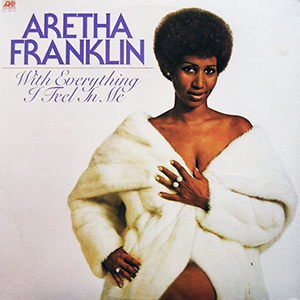
With Everything I Feel in Me is the twenty-first studio album by American singer Aretha Franklin, Released on November 25, 1974 by Atlantic Records. This recording did not do as well commercially as previous Franklin albums. The LP reached #57 on Billboard's Top Album charts and peaked at #6 on the R&B album charts. None of its singles reached the Top 40 on the Billboard Hot 100. The lead single, "Without Love", written by Aretha's sister Carolyn Franklin and former Motown producer Ivy Jo Hunter, charted at #45 Pop, but fared far better on the R&B charts reaching #6. The title cut also charted at #20 on the R&B charts in early 1975. The album was released on compact disc in Europe in 2008.
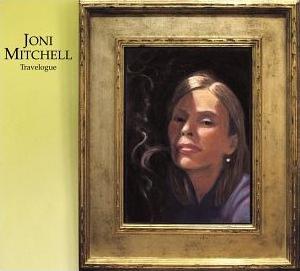
Travelogue is a 2002 double album by Canadian singer-songwriter Joni Mitchell featuring orchestral re-recordings of songs from throughout her career. It is her 18th studio album and is the follow-up to 2000's Both Sides Now which had a similar format. Upon release Mitchell announced that it would be her last album, but later revealed work on a new studio album.
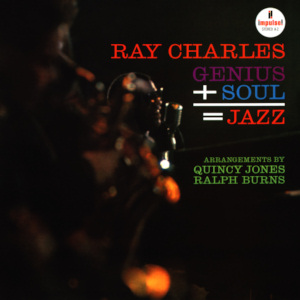
Genius + Soul = Jazz is a 1961 album by Ray Charles featuring big band arrangements by Quincy Jones and Ralph Burns. Charles is accompanied by two groups drawn from members of The Count Basie Band and from the ranks of top New York session players. It was recorded at the Rudy Van Gelder Studio in two sessions on December 26 and 27, 1960 and originally released on the Impulse! label as Impulse! A–2.
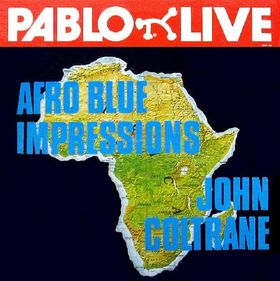
Afro Blue Impressions is an album by jazz musician John Coltrane recorded live in 1963 and released on the Pablo label in 1977 as a double LP.

New Life is a 1976 big band jazz album recorded by the Thad Jones/Mel Lewis Jazz Orchestra and released on the A&M/Horizon Records label. The album was nominated for a 1976 Grammy award in the Best Jazz Performance by a Big Band category.
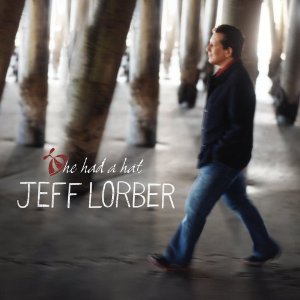
He Had a Hat is a 2007 album by jazz pianist Jeff Lorber. All compositions on this album were original, except for "Grandma's Hands" which was originally composed and performed by Bill Withers.

Luxury You Can Afford is the seventh studio album by Joe Cocker, released in 1978 on Asylum Records, his only release for that label.

Aretha: With The Ray Bryant Combo is the debut studio album by American singer songwriter, Aretha Franklin, released on February 27, 1961 by Columbia Records. The album is Aretha's first release for Columbia, and is also known under its working title Right Now It's Aretha and sometimes simply as Aretha. Following in the footsteps of her close friend Sam Cooke, Aretha was "discovered" by famed Columbia Records producer John H. Hammond, who on the cover notes of the 1973 edition of "The Great Aretha Franklin: The First 12 Sides" mentions, that she was in fact recommended by the composer Curtis Reginald Lewis. With the support of her father, Reverend C.L. Franklin, Aretha ventured out to New York City's Columbia Record Studios to record her debut album for the label. Hammond paired Aretha Franklin with Ray Bryant, and combo and arranger J. Leslie McFarland, while taking charge of the album's production, which was received to mixed reviews.

Accentuate the Positive is an album of songs from the 1940s, recorded in 2004 by singer Al Jarreau. In 2005 the album received a Grammy Award nomination for Best Jazz Vocal Album.
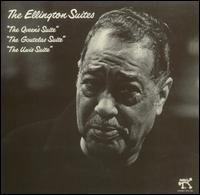
The Ellington Suites is an album by American pianist, composer, and bandleader Duke Ellington which collects three suites recorded in 1959, 1971, and 1972 released on the Pablo label in 1976. The album won a Grammy Award for Best Jazz Performance by a Big Band in 1976. Ellington wrote "The Queen's Suite" for Queen Elizabeth II who was presented with a single pressing of the recording, which was not commercially issued during Ellington's lifetime.
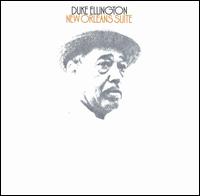
New Orleans Suite is the eighth studio album by American pianist, composer, and bandleader Duke Ellington recorded and released on the Atlantic label in 1970. The album features the final recordings of longtime Ellington saxophonist Johnny Hodges, who died between the album's two recording sessions. The album won a Grammy Award in 1971 for Best Jazz Performance by a Big Band.

Togo Brava Suite is an album by American pianist, composer, and bandleader Duke Ellington. It was recorded in England and released by United Artists Records in 1971. The album won a Grammy Award for Best Jazz Performance by a Big Band in 1972. The album was later reissued on CD by Blue Note in 1994, and studio recordings of the complete "Togo Brava Suite" were released in 2001 by Storyville.

Ellington '66 is an album by American pianist, composer, and bandleader Duke Ellington that was recorded and released on the Reprise label in 1965. The album won a Grammy Award for Best Instrumental Jazz Performance – Large Group or Soloist with Large Group.

The Funky Side of Life is a jazz album released by Madlib's Jazz project under the alias of Sound Directions. It features Madlib playing different instruments under different aliases as part of a single group. This album was released in 2005 under Stones Throw Records.
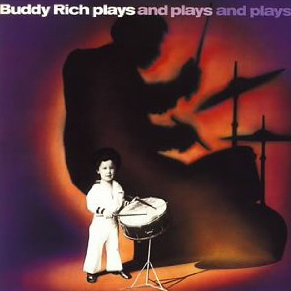
Buddy Rich Plays and Plays and Plays is a big band jazz album recorded by Buddy Rich and released by RCA Records in 1977. The album also marked his last for the label. This album was nominated for the "Best Jazz Performance By A Big Band" at the 20th Annual GRAMMY Awards (1977) and lost to Prime Time by Count Basie.

Wild Horses Rock Steady is an album by jazz organist Johnny Hammond recorded for the Kudu label in 1971.
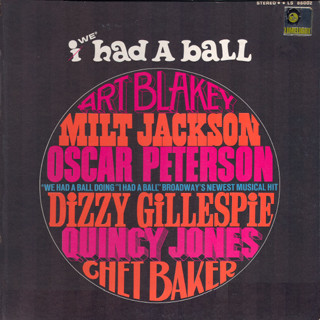
I/We Had a Ball is an album consisting of jazz versions of songs from Jack Lawrence and Stan Freeman's musical I Had a Ball performed by Art Blakey, Milt Jackson, Oscar Peterson, Dizzy Gillespie, Quincy Jones and Chet Baker which was released by Limelight in 1965.




